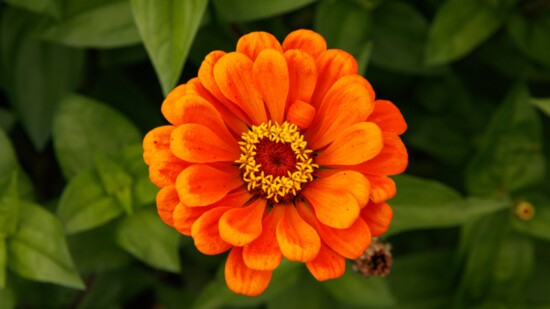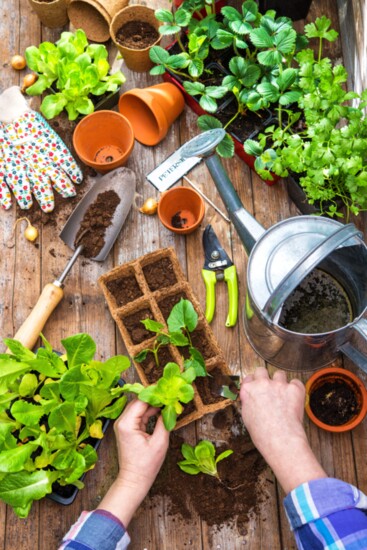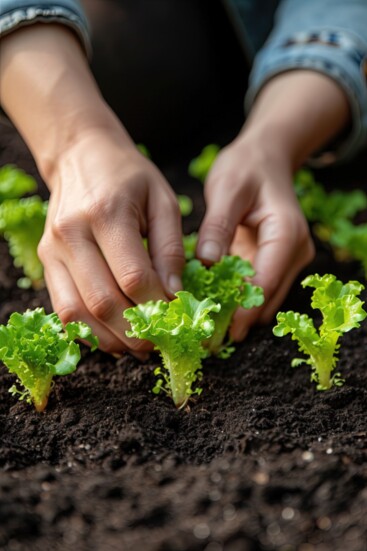As the sweet fragrance of Spring draws near, our gardens beckon to be brought back to life. Whether it’s flowers or vegetables, you can get a jump on the planting season by sprouting seeds indoors. Then you’ll be ready to sow as soon as the weather warms up. Katie Baker is Vice President of the Macomb County Master Gardener Association Board. She and her fellow master gardeners share what you need to know to successfully start seeds to yield a beautiful summer yard.
First, Katie says, grow what you’ll eat or enjoy seeing in your garden. Beans, leafy greens and radishes sprout quickly – peas and radishes are cold-tolerant so they can be planted directly in the ground – and herbs like basil, fennel, parsley and dill are culinary favorites. Marigolds, zinnias, petunias and snapdragons are great floral picks, as are ground-covering nasturtiums, which are edible and will grow well in pots. Katie also recommends native plants because they’re familiar with the Michigan climate and pollinators know what to do with them.
While you can use plastic seed trays and starter kits, consider repurposing items such as cardboard egg cartons, cut-down milk jugs and yogurt cups. Punch a drainage hole in each container before planting. Fill them with lightweight seed-starting soil mix, as regular garden soil is too heavy. After you’ve planted the seeds, mist them. Some need consistent warmth, so warming mats can be placed under seed trays, or you can place them on top of a refrigerator. Once your seeds have sprouted, they need light for 8-12 hours a day. Plants also need air circulation to be strong enough for the outdoor world, so keep a small fan on them.
When the temperatures are right to transplant your indoor garden outside, plants need to be “hardened.” Begin by setting plants in the shade for a few days, then gradually expose them to sunlight for an hour per day, increasing the time by an hour every couple of days.
"Consider germination time for each of the seeds you want to grow and consider growing seeds with similar light, water, soil pH, humidity and other requirements together," Katie says. "For example, herbs grow well with other herbs and plants in the brassica family do well with one another, but tomatoes need more light than leafy greens do, and herbs germinate faster than larger vegetables do."
You can visit the MSU Extension resource at www.canr.msu.edu/outreach/ask-an-expert for questions and more information. The Macomb County Master Gardener Association welcomes attendees to its monthly meetings. Find the schedule at macombcountymga.org.


